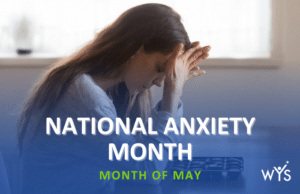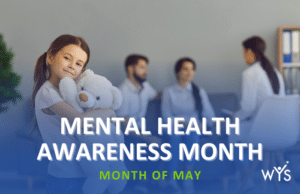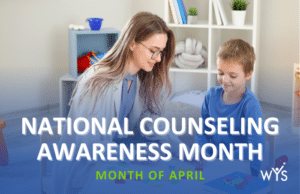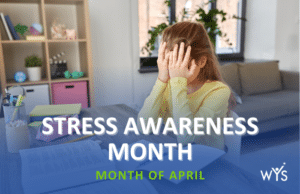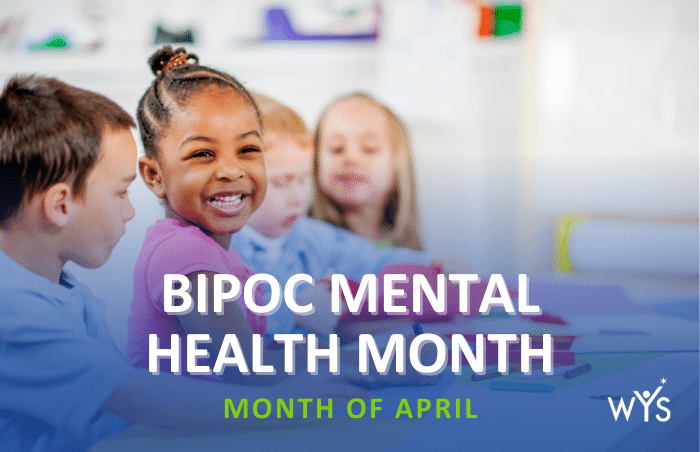
Mental health is essential to an individual’s overall well-being, but barriers to care are extremely prevalent for many Black, Indigenous, and People of Color (BIPOC) communities. BIPOC Mental Health Month is recognized annually in April and its goal is to highlight the unique challenges these communities face and promote mental health awareness, equitable access to care, and inclusive support.
At Western Youth Services (WYS), we are committed to strengthening youth mental health awareness and providing impartial, accessible care for youth of any and all backgrounds. By understanding the obstacles that BIPOC individuals face, we can work together toward solutions that encourage healing, resilience, and well-being.
Understanding the Challenges
BIPOC communities often experience systemic hurdles when trying to receive mental health care, including financial limitations, cultural stigma, and a lack of diverse providers. According to the National Alliance on Mental Illness (NAMI), only one in three Black adults in need of mental health care actually receives it, compared to nearly half of White adults. Similarly, Latinx individuals are 50% less likely to seek mental health treatment than White individuals (NAMI, 2023).
Historical trauma, discrimination, and socioeconomic disparities also play a part in increased mental health concerns in BIPOC communities. Studies show that Native American youth experience PTSD at rates similar to combat veterans due to intergenerational trauma and systemic oppression. Asian Americans are the least likely racial group to receive mental health treatment, with only 23% of those with a mental health condition seeking professional support (NAMI, 2023). These challenges showcase the urgent need for tailored and identity-affirming mental health resources.
Common Barriers to Mental Health Care
While the stigma surrounding mental health exists across all communities, BIPOC individuals often are faced with additional obstacles, including:
- Cultural stigma: Mental health concerns may be viewed as a weakness or family issue rather than a medical condition.
- Lack of inclusive care: A shortage of diverse mental health professionals can make it difficult for BIPOC youth to find providers who understand their lived experiences.
- Economic and systemic barriers: Many BIPOC families experience financial hardships that make accessing therapy or treatment difficult.
How Western Youth Services Supports BIPOC Mental Health
At WYS, we believe that every individual deserves access to mental health resources specifically accommodated to fit their unique needs. Some of our programs that support BIPOC youth include:
- School-Based Mental Health Programs: Providing on-campus support and early intervention for students in underserved communities.
- Trauma-Informed Care: Addressing the impact of historical and personal trauma through culturally responsive therapy and workshops.
- Family & Community Support Services: Offering bilingual and culturally sensitive counseling to ensure families receive the help they need.
- Professional Development for Mental Health Practitioners: Training professionals in culturally inclusive care to better serve diverse communities.
Resources for BIPOC Youth and Families
If you or someone you love is struggling, help is available. Here are some organizations that provide support for BIPOC mental health:
- The Steve Fund (www.stevefund.org) – Focuses on the mental health of young people of color.
- Therapy for Black Girls (www.therapyforblackgirls.com) – A directory of culturally inclusive therapists.
- Latinx Therapy (www.latinxtherapy.com) – A mental health resource for Latinx individuals.
- Asian Mental Health Collective (www.asianmhc.org) – A platform advocating for Asian American mental health.
- StrongHearts Native Helpline (www.strongheartshelpline.org) – A helpline supporting Indigenous communities.
BIPOC Mental Health Month is not solely about recognizing challenges, it’s about nurturing resilience, making voices be heard, and ensuring that all young people have access to the support that they need and that they deserve. Healing is possible, and no one should have to navigate their mental health journey alone.
At Western Youth Services, we are here to help. If you or someone you know needs support, click here to take the first step. Let’s work together to help create a future where mental health care is inclusive, accessible, and empowering for all.
If your child or a young loved one is struggling with a mental health concern, we encourage you to reach out to a mental health professional or to contact an Access Coordinator at Western Youth Services by sending an email to gethelp@westernyouthservices.org or by calling us toll-free at 888-312-0406.You can find Orange County, state, and national resources on our site here: https://www.westernyouthservices.org/resources/.



